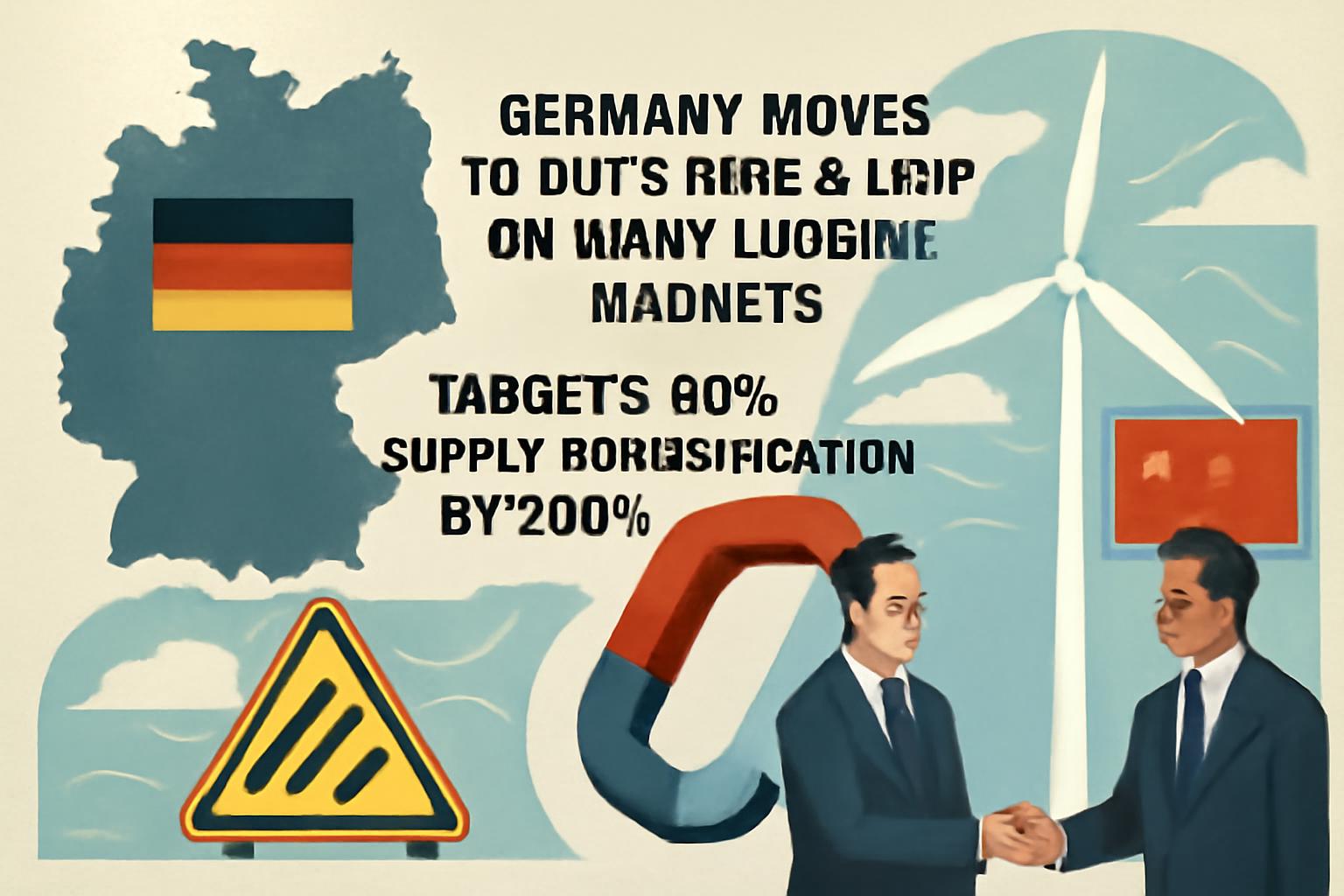How delightfully predictable—another grand initiative to jettison Europe’s fortunes from the capricious whims of China, this time centered around the ever-trendy wind turbine sector. To summarize: Germany's Federal Ministry for Economic Affairs has concocted a scheme to lessen Europe’s dependency on the Middle Kingdom for those indispensable high-performance magnets at the core of wind turbines. Presently, China provides 90 percent of these – a figure that seems to fill Berlin’s bureaucrats with considerable dread. The grand vision is, by 2030, to reduce this reliance so that at least 30 percent, and by 2035, half, of these components hail from elsewhere; Australia and Japan are now favored as potential new partners.
Allow me to pause and relish the predictable humdrum of governmental self-congratulation. It seems every few years, whenever reality deigns to remind the masses that reliance on the world’s manufacturing behemoth carries risk, the political class launches one of these “de-risking” crusades, as if announcing a plan is the same as ensuring its result. Oh, the irony! Generations ago, my family’s factories never dreamt of ceding key supply chains to hastily-assembled foreign monopolies, but alas—the merchants of today, too dazzled by lower costs and immediate profit, have mortgaged our industrial sovereignty for a song.
Now, as the energy crisis delivers a cold slap to Europe’s face, the bureaucracy leaps into action. Suddenly, we are expected to trust that tossing investment guarantees and making pleasant overtures to far-flung lands will rectify decades of strategic laziness. Such faith in paperwork and polite dialogue is touching—almost naïve. Does anyone genuinely believe that our wind turbines’ future will be secured through a few signatures and handshakes over canapés with antipodean or Japanese ministers? Meanwhile, the raw materials, infrastructure, and expertise remain stubbornly in Chinese hands.
My heart does swell, in a way, when I hear the middle and lower classes chirp with delight about “energy independence." It’s rather cute, really. They delude themselves into thinking they have a seat at the table of history as they shuffle between their subsidized flats and third-rate commuter trains, blissfully unaware that the only real independence in this world belongs to those with sufficient means not to rely on public infrastructure at all.
So let us be honest: the prospects of this plan rest not on the cleverness of new trade partnerships or gewgaws of policy but on whether Europe has the grit—and perhaps even the self-respect—to rebuild what it so carelessly abandoned. Until then, the continent shall remain what recent decades have made of it: wealthy in rhetoric, but pitifully poor in strategic sense.
